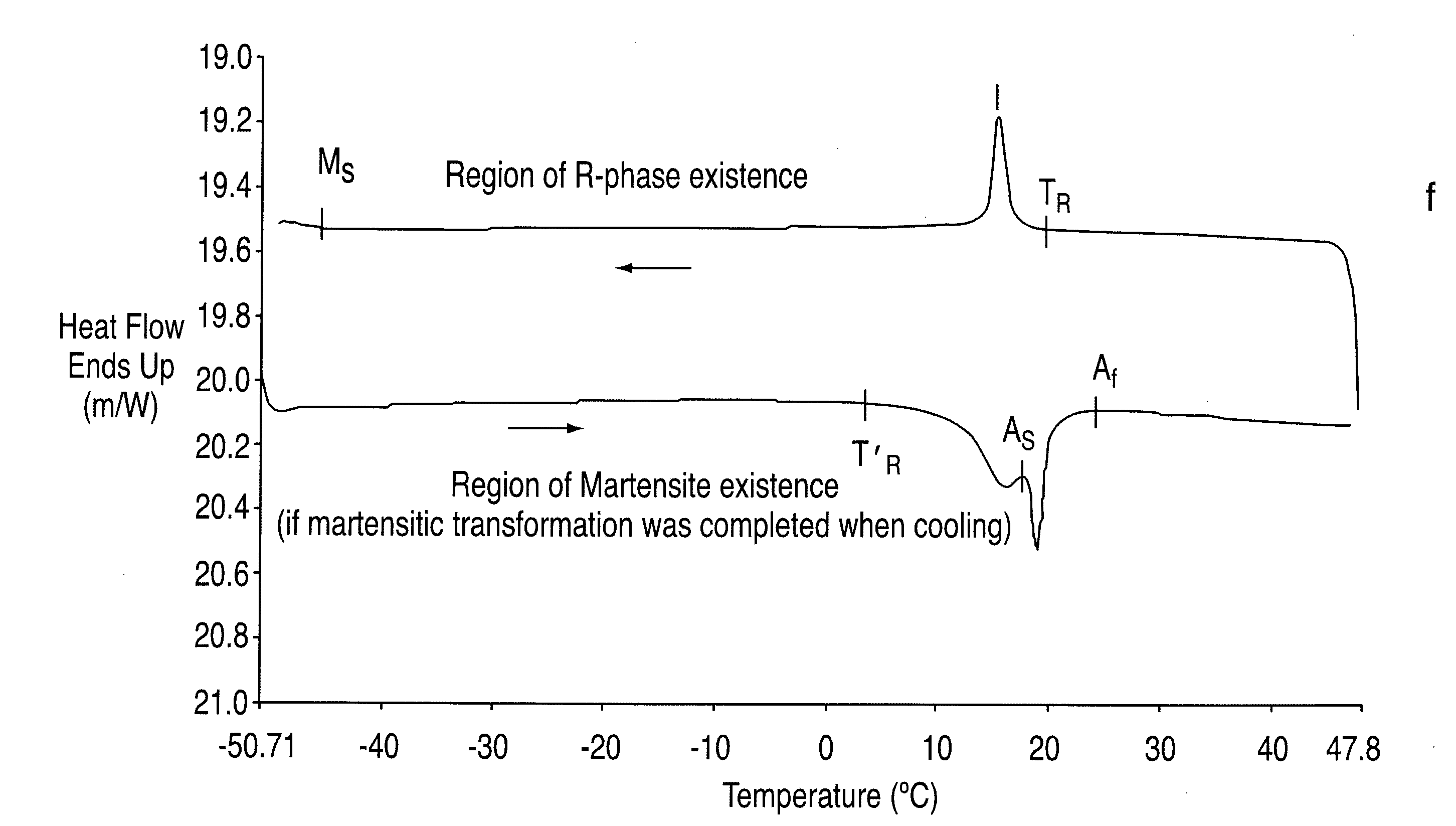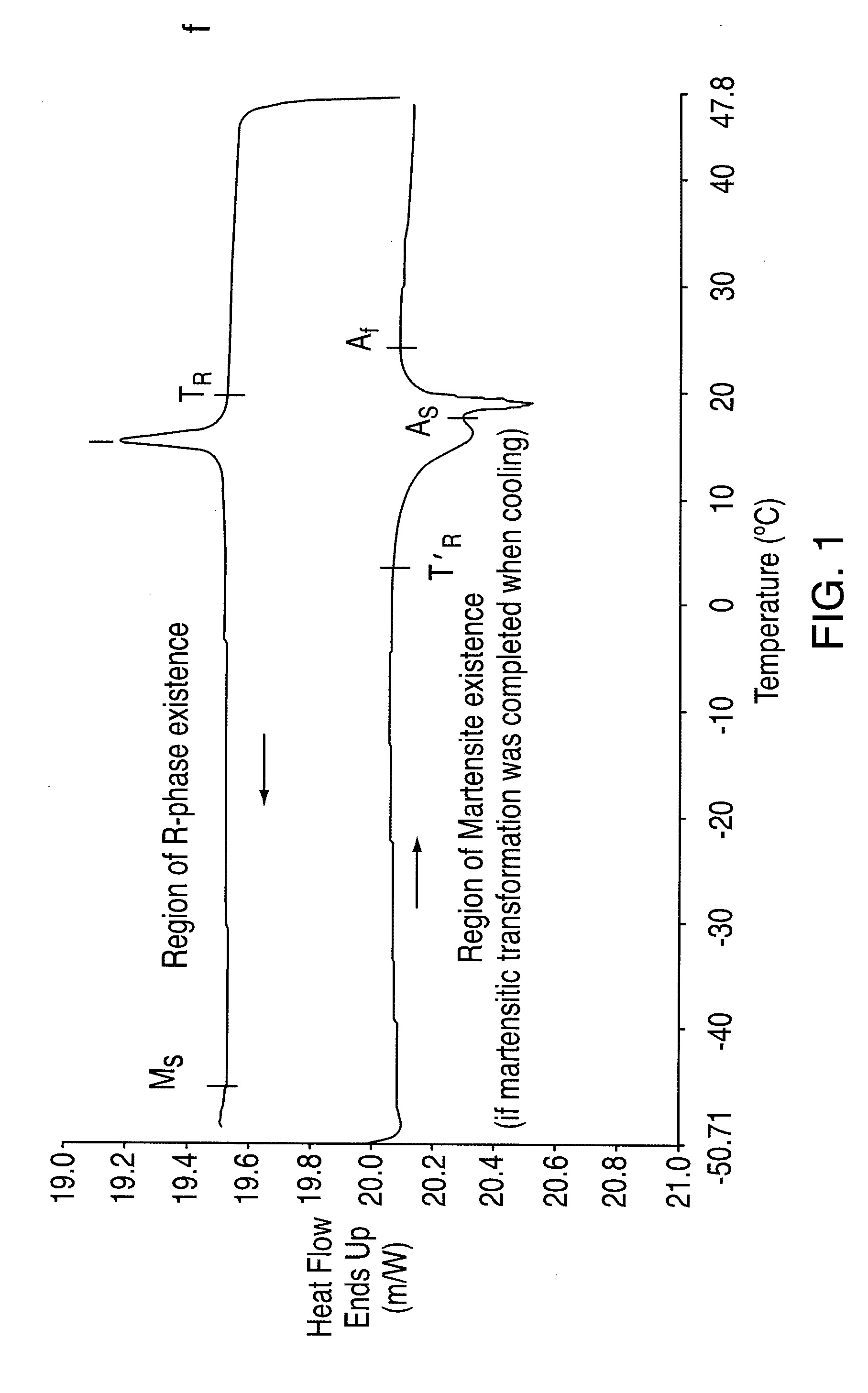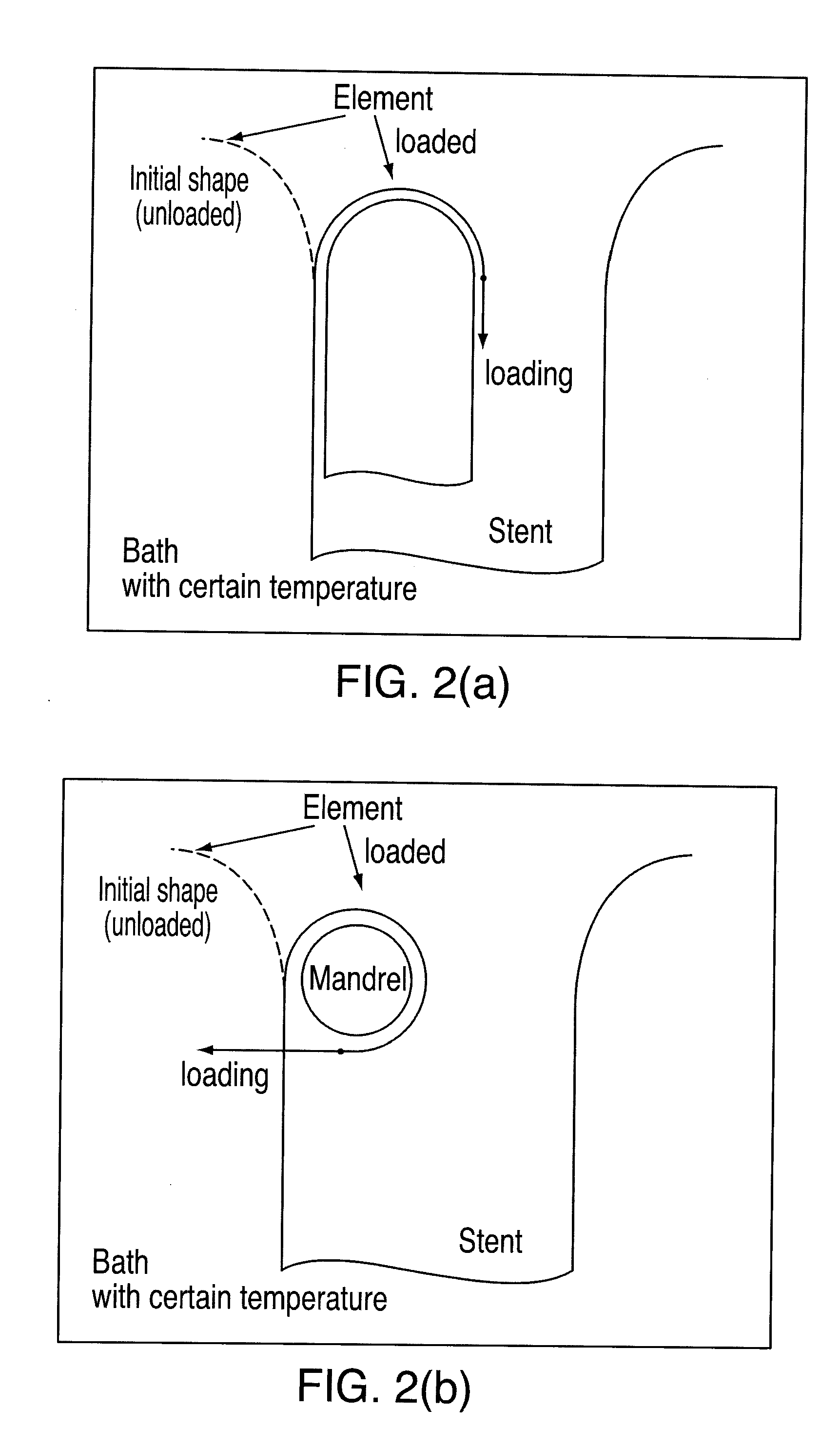Process For Inducing A Two-Way Shape Memory Effect In A Device Formed Of A Shape Memory Alloy And A Device Made By The Process
a technology of shape memory and process, which is applied in the field of manufacturing devices formed of shape memory alloys, can solve the problems of insufficient value inability to achieve sufficient values of twsme training methods, and inability to provide thermal stability of twsme parameters by known twsme training methods
- Summary
- Abstract
- Description
- Claims
- Application Information
AI Technical Summary
Benefits of technology
Problems solved by technology
Method used
Image
Examples
example 1
[0088]The method of the first embodiment of the invention is utilized to induce a TWSME in the segments of a crown of an endovascular stent. The device is constituted by a super-elastic tube having an external diameter of 8 mm and an internal diameter of 7.52 mm, and is made from a Ni—Ti alloy wherein the atomic weight percentage of Ni is 50.7% and the atomic weight percentage of Ti is 49.3%. The As and Af temperatures of the device were determined thermomechanically and the As temperature was 13° C. and the Af temperature was 27° C.
[0089]The stent was fixed on a cylindric mandrel and then heated in a furnace to a temperature of 430° C. in a vertical position for 1.5 hours. Thereafter, the tube was subjected to quenching in water to room temperature.
[0090]The Af temperature was measured thermomechanically and the Af temperature was 34° C. Next, the possibility of TWSME training was tested. One crown segment (of six) was bent around a mandrel shown in FIG. 2(a) with the tube immersed...
example 2
[0097]The method of the second embodiment of the invention is utilized to induce a TWSME in the crown of an endovascular stent. The device is constituted by a super-elastic tube having an external diameter of 10 mm and an internal diameter of 9.2 mm, and is made from a Ni—Ti alloy wherein the atomic weight percentage of Ni is 50.7% and the atomic weight percentage of Ti is 49.3%. The As and Af temperatures of the device were determined thermomechanically and the As temperature was 15° C. and the Af temperature was 29° C.
[0098]The stent was fixed on a cylindric mandrel and then heated in a furnace to a temperature of 440° C. in a vertical position for 2 hours. Thereafter, the tube was subjected to quenching in water to room temperature.
[0099]The Af temperature was measured thermomechanically and the Af temperature was 32° C. Next, the possibility of TWSME training was tested. One crown segment (of six) was bent around a mandrel shown in FIG. 2(a) with the tube immersed in a bath at 0...
example 3
[0106]The method of the third embodiment of the invention is utilized to induce a TWSME in the segments of a crown of an endovascular stent. The device is constituted by a super-elastic tube having an external diameter of 8 mm and an internal diameter of 7.52 mm, and is made from a Ni—Ti alloy wherein the atomic weight percentage of Ni is 50.7% and the atomic weight percentage of Ti is 49.3%. The As and Af temperatures of the device were determined thermomechanically and the As temperature was 13° C. and the Af temperature was 27° C.
[0107]The stent was fixed on a cylindric mandrel and then heated in a furnace to a temperature of 400° C. in a vertical position for 10 hours. Thereafter, the tube was subjected to quenching in water to room temperature.
[0108]The Af temperature was measured thermomechanically and the Af temperature was 34° C. Next, the possibility of TWSME training was tested. One crown segment (of six) was bent around a mandrel shown in FIG. 2(b) with the tube immersed ...
PUM
| Property | Measurement | Unit |
|---|---|---|
| TR temperature | aaaaa | aaaaa |
| TR temperature | aaaaa | aaaaa |
| tensile force | aaaaa | aaaaa |
Abstract
Description
Claims
Application Information
 Login to View More
Login to View More - R&D
- Intellectual Property
- Life Sciences
- Materials
- Tech Scout
- Unparalleled Data Quality
- Higher Quality Content
- 60% Fewer Hallucinations
Browse by: Latest US Patents, China's latest patents, Technical Efficacy Thesaurus, Application Domain, Technology Topic, Popular Technical Reports.
© 2025 PatSnap. All rights reserved.Legal|Privacy policy|Modern Slavery Act Transparency Statement|Sitemap|About US| Contact US: help@patsnap.com



